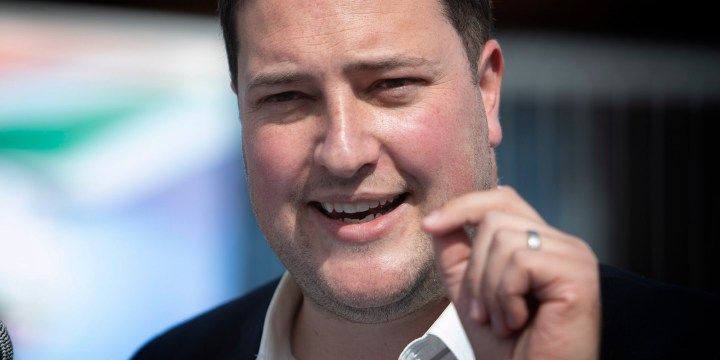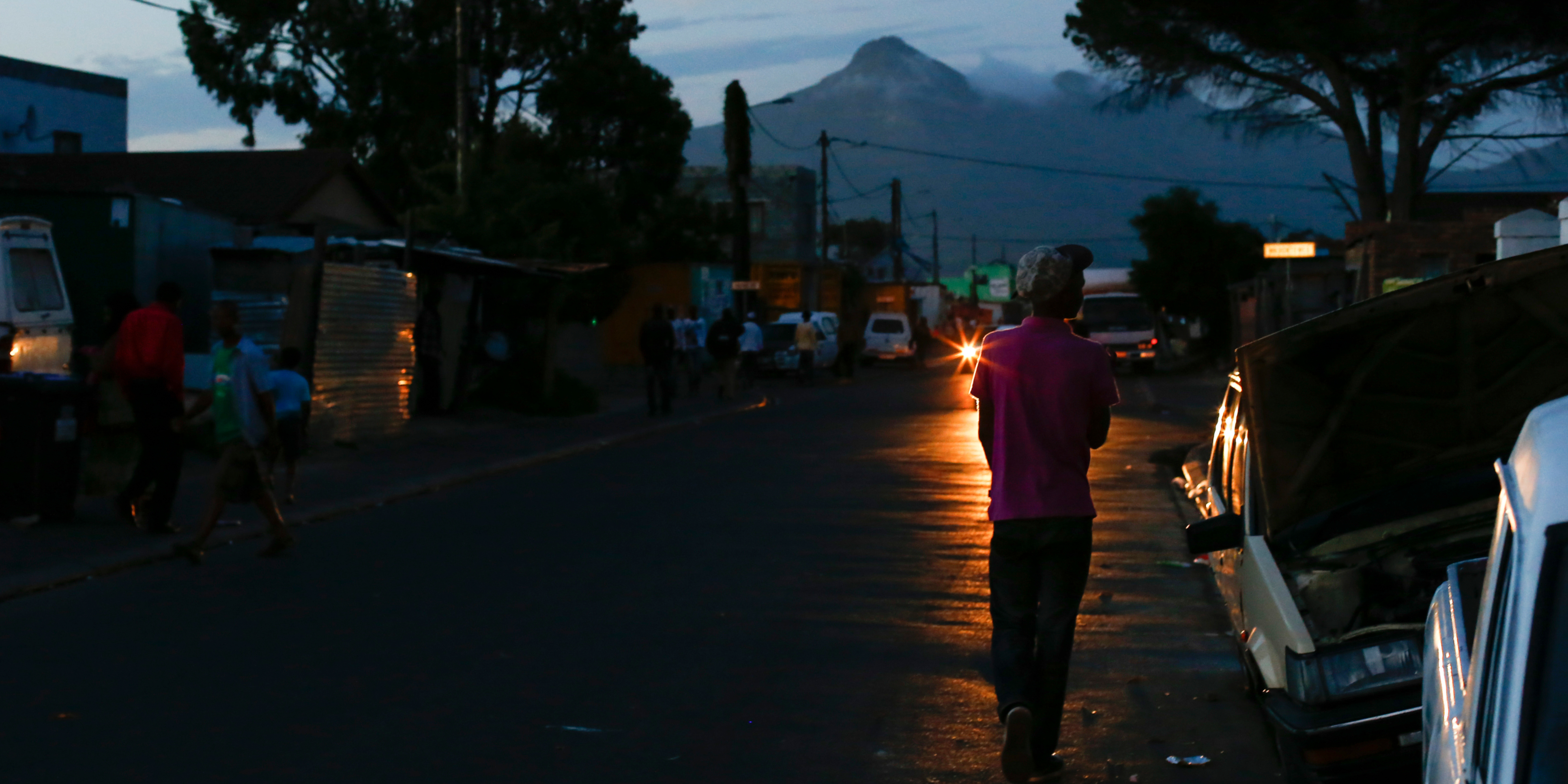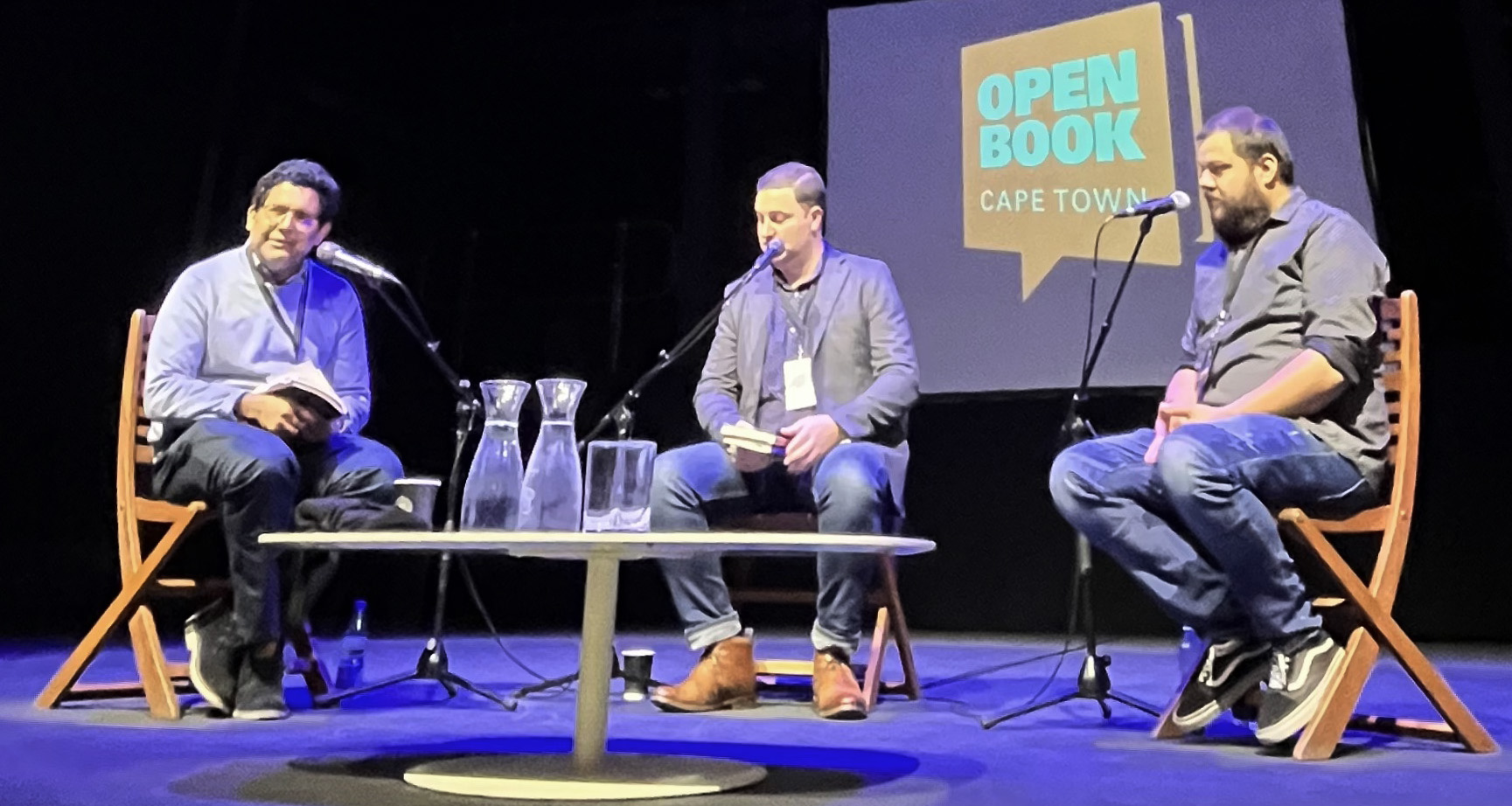POWER CRISIS
Cape Town on a roll to banish blackouts – mayor lays out ‘exciting’ plans

Cape Town is preparing for Stage 8 rolling blackouts because ‘Eskom has failed for too long’, according to mayor Geordin Hill-Lewis. The City is continuing to turn to other sources of renewable, dispatchable energy and is implementing a new power purchase plan starting in October.
Since the two weeks in June when an unprotected strike by Eskom workers triggered Stage 6 rolling blackouts, disproportionately disrupting the economy and South African livelihoods, the City of Cape Town has begun preparing for the worst.
Cape Town mayor Geordin Hill-Lewis and author Kyle Cowan spoke to host Saliem Fakir about Eskom, preventative measures and the future of the city’s energy crisis at the Open Book Festival on Sunday, 4 September.
Hill-Lewis said preparations are being made for Stage 8 rolling blackouts – diesel generators are being filled weekly rather than monthly. In the case of a national shutdown, there has to be enough spare energy somewhere to restart the entire grid again.
“Stage 8 load shedding is a picture that you never want to see in South Africa,” said Hill-Lewis. “Never mind the riots, we do not have enough diesel or enough diesel generators to keep our water filtration systems working, and essential services would collapse within 48 hours.”
While Stage 8 is the worst case scenario, Hill-Lewis said there is still a reasonable risk of Stage 6 recurring.

Residents move between car lights during rolling blackouts in Masiphumelele, Cape Town, on 7 December 2014. (Photo: EPA / Nic Bothma)
Cape Town last experienced rolling blackouts almost three weeks ago, on 18 August. South Africa has already had 91 days of blackouts so far in 2022.
Fakir, the executive director of the African Climate Foundation, said that if Eskom continues to fail, the entire economy will be in serious danger.
“But crisis does lead to change, and we’re starting to see that,” he added.
The City of Cape Town has managed to keep rolling blackouts below the national average because of a hydroelectric pump scheme that can be switched on to mitigate the energy shortage. This is why Capetonians at times have only faced Stage 4 while South Africa at large dealt with Stage 6.
Read in Daily Maverick: “How the City of Cape Town managed to avoid Stage 6 load shedding thanks to hydroelectric scheme”
Beyond the progress already made by Cape Town, Fakir hinted at a “silent revolution” in which other cities will soon play a bigger role.
It’s a ‘political’ problem
According to Hill-Lewis, rolling blackouts are the local government’s top priority. The City of Cape Town has been working to establish goals and take steps to mitigate the issue that has been ongoing for 15 years.
Read in Daily Maverick: “Get a load of this – these South African cities have a plan to ditch Eskom and end power cuts”
“There doesn’t seem to be any good reason why we still have load shedding in South Africa,” said Hill-Lewis. “All of the reasons are actually political – they’re about not signing power agreements, not about whether the technology is available to end this now. Of course it’s available.”
Visit Daily Maverick’s home page for more news, analysis and investigations
The primary objective is to reduce Cape Town’s reliance on Eskom by between 15% and 20% to be immune from Stage 5 by the end of the next four years.
That requires a new source of power that does not come from Eskom, and a way to store that power so that it can be deployed when needed. The plan is to go to markets with a utility-scale, dispatchable power tender in December or January, said Hill-Lewis – a first for South Africa.
“It is a complex, very rapidly developing space, and very exciting,” said Hill-Lewis.
He said the idea is to pay cash to Capetonians for their excess power every month. Starting with businesses, large warehouses, distribution centres and shopping centres, the system will eventually roll out to households as well.
An incentive tariff had just been approved for the next three years, the registration of the process had closed and the first payments to businesses would be made in October.
‘Morally complicated’
However, Hill-Lewis said the idea is morally complicated, because the households that are most likely to invest in renewable power are statistically the wealthiest.
“I need to get my head around if the City should be subsidising those kinds of households to make that investment, when really we have so much work to do among the poorest residents in our city to provide better services and infrastructure for them.”

From left: executive director of African Climate Foundation Saliem Fakir, Cape Town Mayor Geordin Hill-Lewis and author Kyle Cowan at the Open Book Festival. (Photo: Anna Southwell)
The intention is to further incentivise households to use renewable energy and make it easier for them to do it themselves. This incentive will grow over time which will hopefully rapidly increase the use of renewable energy, he said.
While this payment system takes effect, the City is also investigating cheaper options for the installation of renewable energy sources.
“The future is that the electricity business model is dying, and it is a case in which you can’t avoid business model reform,” Hill-Lewis said. “This massive, centralised system that sells power nationally (Eskom) is unaffordable, cumbersome, and it can’t work.”
Renewables are key
Cowan agreed that municipalities have to adapt, and the fastest way to do this is by investing in renewable energy as fast as we can.
“Load shedding is a symptom of a system that has deteriorated and broken down over many, many years. It is the manifestation of a deeper problem,” he said.
Cowan is an award-winning investigative journalist and author of Sabotage: Eskom Under Siege, a book published earlier this year about the conspiracy and corruption at Eskom, uncovering the power struggles that threaten the country’s survival.
“The opportunities for corruption are limitless. Eskom is too big and there is too much to manage for one executive team in Johannesburg,” he said. “There is a massive amount of frustration about a lack of good policy, policy integration and existing policies.”
Read in Daily Maverick: “‘Sabotage’ by Kyle Cowan: Eskom’s corruption and neglect uncovered”
The management team at Eskom is the most well-rounded and well-qualified that the company has had in the past decade, since its downfall through corruption starting in 2001, after it was voted best in the world, said Cowan. “It’s difficult to reconcile the fact that we still have load shedding. Something needs to change and it needs to change fundamentally.”
Cape Town “can never fully cut the umbilical cord of Eskom”, said Cowan, because there always needs to be a baseload of electricity for informal settlements and basic electricity units. Renewable energy is just not yet permanently available and reliable, he added.
“The door (of Eskom) can be closed again, but they can never close it as successfully because now we know too much about what is actually cooking.” DM

















Right! Cape Town gets it right again.
PS: Next time you buy a car get a smaller one and spend the difference on solarPV
I agree… tighten that belt, switch off what’s not really needed and look at ways of going solar
Great last line of the Eskom article. Thank DM for the good work you and your team are doing. Please keep it up.
Absolutely! Had solar installation done this year. What a pleasure! And I finally got a pre-paid meter (approval took 3 years!) – so, I’m off the Municipal electricity billing system which is definitely not accurate. Even before the solar installation, the pre-paid meter installation saw my consumption come down to one third of daily consumption! How could the Municipality get it so wrong? The mind boggles.
We need a market for supply and demand of electricity to incentivise both consumers and producers.
We’re going to learn the hard way that “renewables” are not the answer. The hard way.
I absolutely agree. Germany has already shown this and all this talk of solar and wind ignores the needs of industry. My preference is for nuclear power followed by gas. We need cheap, ubiquitous and easy to use energy to upgrade our economy to one fit for all.
Well said. Decentrakusation is underway and alternative models ..some in implementation. One troubling thought is Eskom ability to provide customer facing solutions…such as utility scale BESS for example. Another is how to redeploy displaced workers as coal mines and old plants shut down.